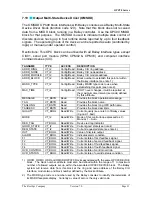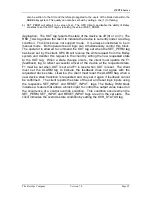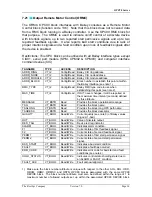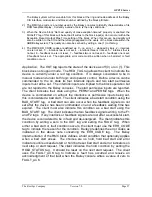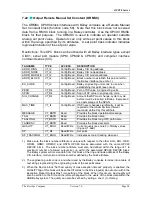
OPC90 Server
RS_TEXT VT_BSTR
Read/Write
Requested state as a string (see note 2).
TRAVEL
VT_BOOL
Read
Travel indicator (see note 3).
OVR_CONTROL
VT_BOOL
Read
Override control indicator.
OVR_STATUS VT_BOOL
Read
Override status indicator.
Notes:
1.) The GOOD_STATE and REQ_STATE (requested state) attributes are used to view current
operating state of the block and command its requested state. Valid values are: (zero =
default, one = state 1, two = state 2, and three = state 3). Writing any of these values to
REQ_STATE commands the MSDD to that associated state. If the controller MSDD block
has pulsed outputs enabled (S22 non-zero), the REQ_STATE will automatically reset to the
default state (0) when the pulsed outputs return to the default state. This feature can be
disabled by turning off the OPC90 Device block “MSDD Pulse Out Handling” property.
2.) Text strings can be written to this tag to control the MSDD requested state. Valid text strings
are the GSLSD0, GSLSD1, GSLSD2 and GSLSD3 settings along with “Default”, “0”, “1”, “2”,
“3”, “State 0”, “State 1”, “State 2”, “State 3”, “State0”, “State1”, “State2” and “State3”. Writing
any of these strings is case insensitive.
3.) Travel indicator is not actually received from Bailey but composed by the driver for display
indication purposes. It is set for the interval of time between commanding a new requested
state and waiting for the good state to arrive at the requested state while no alarm has been
flagged by the Bailey MSDD block.
The RoviSys Company
Version 7.0
Page 84






















